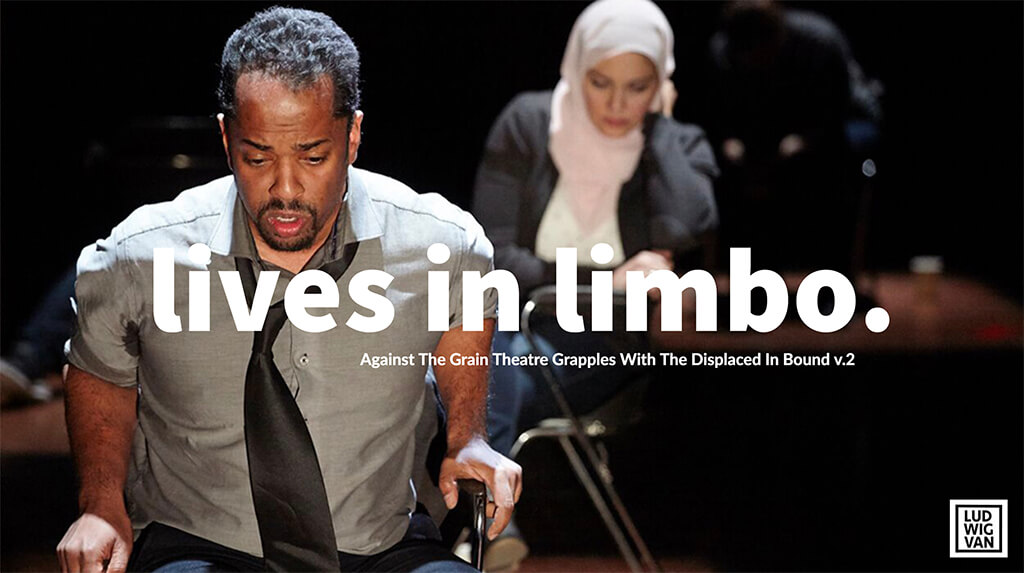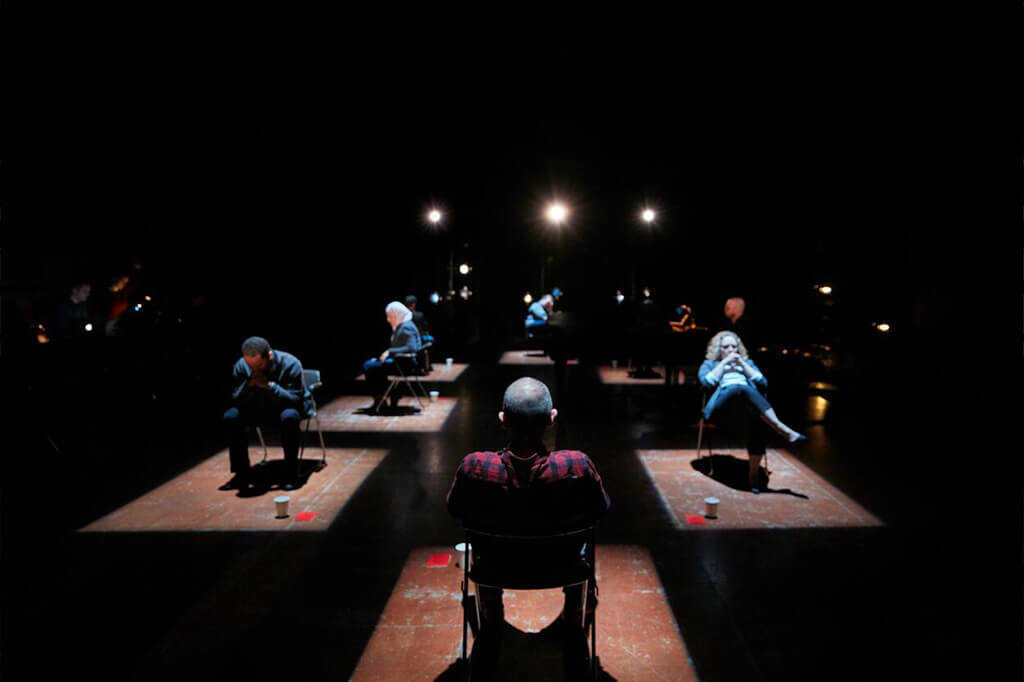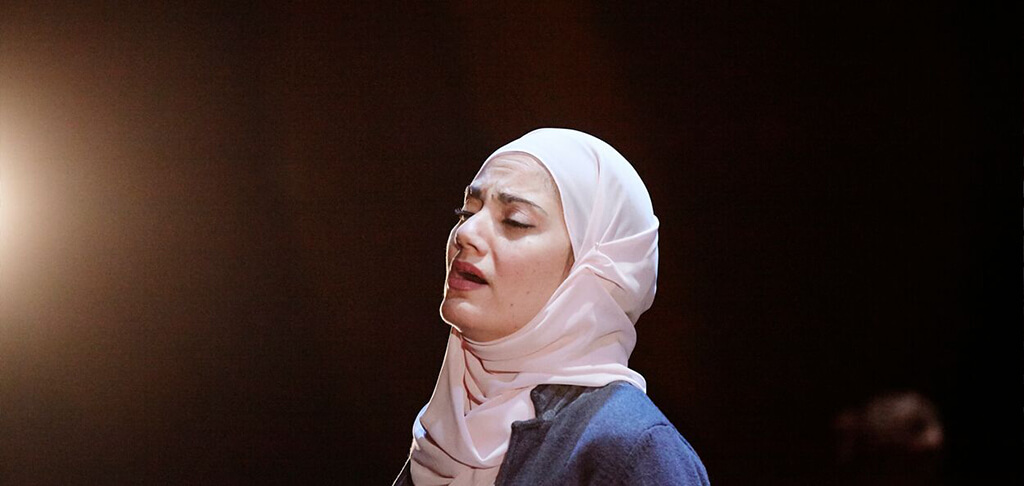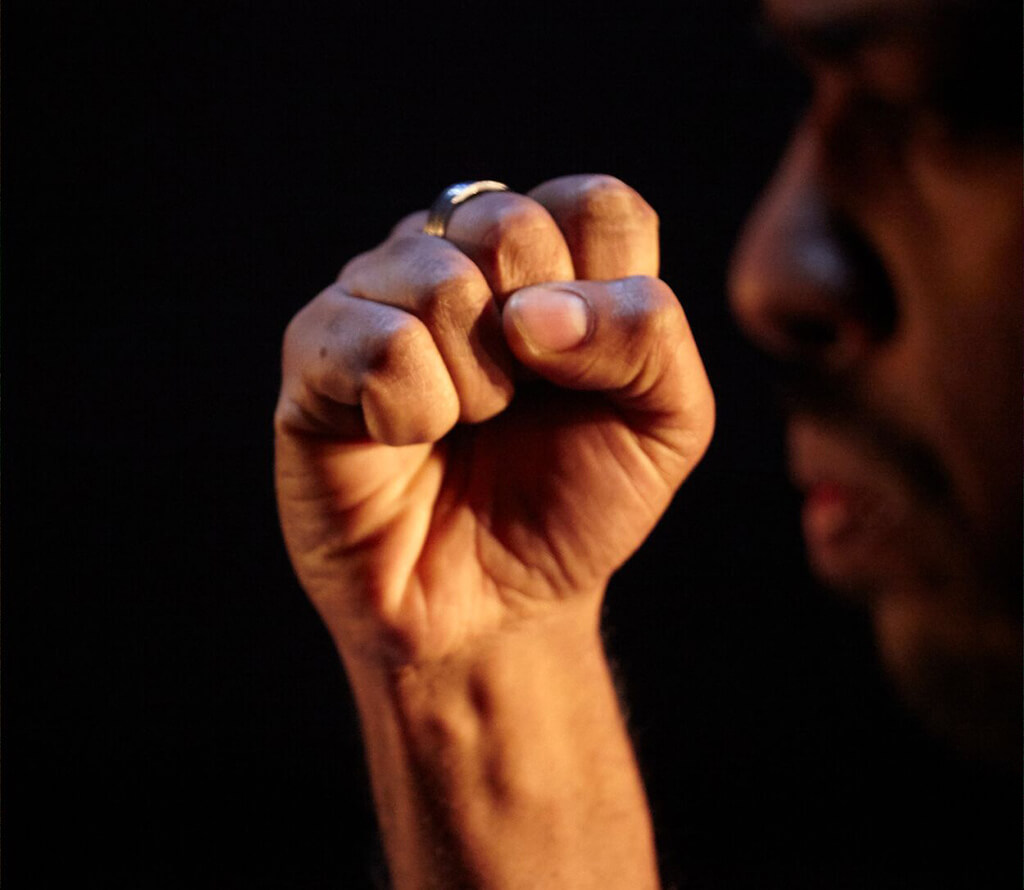
340 days and nights.
That’s the number of days since the premiere of the Against the Grain’s Bound v.1, to this year’s presentation of Bound v.2. Almost a year.
A year could be a very short or a long time — however, anyone who’s been involved with governmental processes, especially immigration, would nod in agreement that a year, or two, or even a decade, can pass in a timeless limbo when one is bound in-between places, where time becomes meaningless, and existence extends to the end of sanity.
Recently, Hassan Al Kontar, the stranded Syrian, made the news when he was trapped in Kuala Lumpur international airport for 208 days. Dodging the Syrian military draft, he documented his daily life through social media, hoping to get out to a third country — however, after his arrest by the Malaysian police on 01 October, it is expected that despite his effort, he is likely to be sent back to Syria. Though most of us may have forgotten about him already.
And there was Mehran Karimi Nasseri, an Iranian refugee who lived in Charles de Gaulle Airport from late-August 1998 to July 2006. Perhaps fortunately (it is difficult to find an apt word for such situation), illness led to his eventual release to a Parisian shelter in 2008. 7067 days from the first step into the airport until the first step out to the world. That’s over 19 years.
A faraway story? Quite interesting yet… so far from our lives? Atypical, sensational cases?
For reference, the current processing time for applications for protected persons and convention refugees in Canada is 27 months. For Humanitarian and compassionate cases, the wait time is anywhere between 22-36 months. And results aren’t guaranteed. And we, Canada, send many people back out.
It is our reality. It is part of our city, where these lives-in-limbo suffer in the great-big what if. And of the discriminated lives. Of limitations, life-in-underground, and of being bound/tied/captive. And what do we do with such tabooed subjects in the Arts, with a multitude of failure risks: of under/over/misrepresenting, raising controversies and tempers, self-imposed denials and blanket statements about inclusivity/human responsibility?
Perhaps, we make an opera.

Bound v.1 (2017) was the first stage of three, built on new librettos based on (then) current events by Joel Ivany, founder and artistic director of Against the Grain Theatre (AtG). The cast of seven singers and an actor went through workshops with a Holocaust survivor, a representative from the Canadian Arab Institute, and a member of the 519 Trans-community, and were deeply involved in each character’s development.
Kevin Lau, with Alexander Neef’s challenge of integrating Handel’s music into it, started digging deep into the musical mash-up, and Topher Mokrzewski channelled the musical draft through solo piano with the singers.
“2016 was quite a year,” explained Ivany. “Trump was getting elected as the President of the United States. We were working on Ayre — a highly political work, and our interaction with the Ismaili Centre, and all these experiences made us think about how to integrate it all into arts, how to create dialogues, how to see beyond our own backyard.”
All three performances were followed by open discussions by all. The audience feedback was noted, then it was put into the mash — and AGT slowly processed it.
For Bound v.2, the focus is on the music. With the support of an Ontario Arts Council grant, Kevin expanded the music to an ensemble of 10 instrumentalists and digital sound designer, Acote. The singers are streamed down to a quartet, which adds to ensemble’s dynamic potential. With 70 minutes of music, the AGT is leaving out a few things for v.3:
“We’ve left out many of the dialogues and dramatic elements intentionally,” Ivany said. “Bound is about process, and we wanted to share the process with our audience. It is about the evolution of how a new opera can come about. We are looking for feedback after every show this year, once again, to determine our future direction for Bound v.3.”
The musical expansion from v.1 to v.2 is an interesting one. While v.1 consisted of a patchwork of arias from various Handel operas combined into a single coherent experience, v.2 moves away from the initial quilt work.
“I saw the potential to go further and create an entirely different opera experience — one in which the music of Handel would be explored, dissected, broken apart, put back together and re-conceived in an entirely new light,” said Lau. “What I wanted ultimately was to create a genuine hybrid score… It was actually an adrenaline rush to do this and try to create this surreal balancing act between old and new.”
Lacking a natural affinity to Handel’s music, Kevin had to work diligently to overcome his own preferences and biases:
“I was not intimately well-versed in Handel’s music; it was not easy for me to feel moved by it, or even intellectually engage with it. But I found a way in. Much like the language of Shakespeare, the similarities begin to outweigh the differences… the most amazing part is to get to compose this new music. Seeing the world through another composer’s eyes, you empathize with them, and that’s really what it means to love something.”
“How do you engage with something that is old, and (perhaps to many people) obsolete, exclusive, even irrelevant, but which nevertheless is part of the foundation of our understanding of music (and thus our way of looking at the world?). One answer is to ignore it and look ahead. Another answer is to perform it but not really do anything with it, in which case it becomes a kind of museum piece, to be venerated as a product of its time and place. But a third answer is to engage with it and update it, and to discover and bring back truths that we may have forgotten and that may inform our present experience in valuable ways. That’s the course we chose.”

2018’s instrumentation will consist of string quartet, bass, flute, oboe, clarinet, bassoon, and percussion. The piano is gone. The dreaded voice of the government by Martha Burns returns (Kevin is also incorporating the voice fragments directly into the music). The vocal quartet of detainees includes Miriam Khalil, David Trudgen, Andrew Haji and Justin Welsh. Known for their innovative and curious stance, the aim of this year’s workshop is to present Bound’s soundscape “to present what it could sound like, and what AtG can sound like.”
“In the arts, it’s a bit dicey — sometimes we don’t like to mix life with arts,” Ivany said. “We tend to prefer to escape through the arts, but sometimes it’s not the purpose of it. As Canadians, we can go anywhere, but it’s not the same for everyone else. We are privileged and we don’t need to think about it. But how do we protect our freedom really, with our idea of the government protecting us? Where do we go? Where will we go? We don’t fully know. The public’s opinion becomes crucial if we are trying to construct [anything] from current events.”
For Khalil, a core member of the AtG, the topic of immigration and integration is a personal one. Khalil’s parents were determined to give their children, three boys and Miriam, a better future, and they made the difficult move from Syria to Ottawa in 1987.
“Syria was very different then,” Khalil explained. “As a child, I felt very safe. When we moved, I felt like I was leaving a part of myself behind. I had to re-learn how to socialize in two different languages: English and French, and had to develop different social cues and skills. I was only 7, but I understood that everything was going to be different. I didn’t know it then, but I had to change in order to adapt.”
And how is it here, after some 20 years?
Khalil said she feels “blessed to be in a place like Canada. However, as a woman, and as an Arab, she sees the tides moving forward to a less tolerant frame of mind in places like the United States and Canada. “With this in mind, I feel lucky to be able to travel and share my experiences, especially my Lebanese and Canadian culture with others.”
Her character is based on Amani Al-Khatahtbe, a journalist and women’s rights activist who founded a prominent website MuslimGirl.com, and Miriam reached back into the 2015 Canadian election for the character.

“During the 2015 election, there were many debates in the news and social media about women wearing the niqab, and stories of Muslim women being attacked an assaulted,” said Khalil “I became hyper-aware of how we, as a society, treat visible minorities, especially Muslims. I didn’t know it was so prevalent in Canada, and didn’t think it would ever be an issue here. When Joel mentioned that I would be wearing a hijab in the opera, I looked up stories in recent headlines of what Muslim women are going through at the border and in their communities. Amani Al-Khatahtbe’s story jumped out. She was forced to remove her hijab at the Nice airport, even though her passport photo depicts her with her hijab on. I was immediately drawn to her story.”
Through the workshops and personal research, Miriam and AtG developed each character, and Khalil’s single most important mission in this 3-year project is empathy.
“I feel this opera, through music, and also through the characters’ journeys, which will allow the audience to understand and to feel what each of our characters is feeling. I hope the audience will carry that feeling with them when they next interact with someone in their community that they may not have empathized or thought deeply about, and to hopefully make an effort to be more open, or kind toward them.”
Being displaced, especially against one’s own will and preference, is heartbreaking. Detained and demeaned is an even worse fate. But how do we process it, in the comfort of our own pleasant, safe home (Canada’s GDP per capita Ranking 2018 is at 20th place, ahead of France, UK, and even the UAE)?
There is no single answer, but therein lies the interest for Bound v.2. The core of its exploration goes beyond the actual music, or the finesse of the libretto. It is important, because it is current, and it is still evolving. Next week, do take the time to sit down and watch with unease. And become ready to speak.
++++
Against the Grain Theater: Bound v. 2
19-21 November, 8 pm @ The Great Hall. Details here.
- CRITIC’S PICKS | Classical Music Events You Absolutely Need To See This Week: April 22 – April 28 - April 22, 2024
- CRITIC’S PICKS | Classical Music Events You Absolutely Need To See This Week: April 15 – April 21 - April 15, 2024
- SCRUTINY | Laurie Anderson Entrances A Sold-Out Koerner Hall With A Journey Down The Rabbit Hole - April 8, 2024



